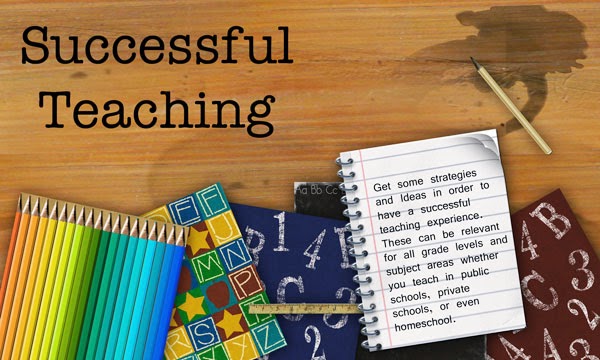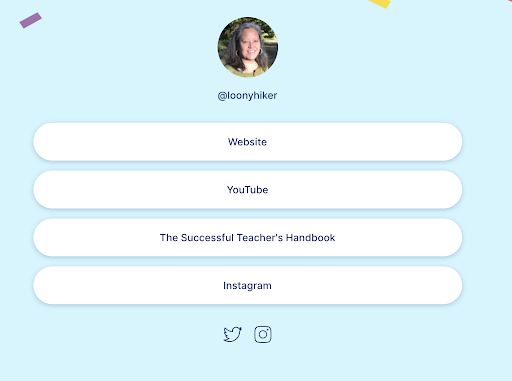
In
The Vast, Unstatable Importance of a Positive Attitude, Leo Babuata, head writer of Zen Habits, writes about having a positive attitude. He states,
“It changes how you interact with people, and that in itself is huge. If people perceive you as a negative person, they tend to get tired of dealing with you after awhile. But if you’re a positive person, you come off in a more positive light, and you’re a joy to talk to and work with and be with.”
He also gives these suggestions for changing the way you think and I thought about how teachers could change the way they think in order to be happier and not get burned out. Too many times I have seen new teachers give up because of negative thinking. Here are Leo’s suggestions with my spin on each suggestion.
1. “Squash negative thoughts.” Too many times I have heard teachers say on Sunday night that they hate the thought of Monday arriving or groan when Monday arrived. I have always tried to see Mondays as looking forward to seeing my students and hear how their weekend went. I also tried to see the new week as a way to make a fresh start and be a better teacher this week then I was last week by learning from my mistakes or trying new techniques.
2. “Mantras.” My husband is my true hero in all of this. For the past 30 years, he would wake up and say “I feel great! It is so great to be alive!” You would never know that he was not feeling well or grumpy. He felt that by saying that, he even felt better and it changed the way he saw the day. As a teacher, as soon as I arrived in my classroom, I would say, “I’m so glad to be here and I’m going to make a difference today!”
3. “See the good in any situation.” Remember that old saying, “when you are given lemons, make lemonade?” Try to find something good when things get rough in your classroom. If there is a student who misbehaves, think of it as an opportunity to try a new behavior modification technique or think of a way to redirect the behavior.
4. “Enjoy small pleasures.” Look for the little things that give you pleasure. I remember noticing that a student who normally doesn’t do well on work, was trying harder today. Or maybe I had a few moments of free time and needed to just sit down and relax without feeling guilty about it.
5. “See the good in yourself.” Sometimes I would think I was not a good enough teacher or not effective. That was the time I tried to focus on what I was good at doing and how it affected my students. This helped me see my weaknesses in a better light so they were manageable instead of overwhelming.
6. “See the good in others.” I heard or read somewhere that there was something good about every person. We all know that there is that one student that you just can’t stand to teach. I would try to find something I liked about that student and when I did that, it changed the way I interacted with that student. I’m not saying we had a mutual like for each other, but we were able to get along better so that I could be effective in teaching this student.
7. “Positive imaging.” I hate to be observed and evaluated! I don’t care how much experience or how good I was, I just felt scared to death. One way I got through this was to picture a positive image of myself teaching. I would be teaching with confidence, and know my material. When I would hold that image in my mind, it made it much easier when I was observed and evaluated.
8. “Anticipate fun.” Have fun teaching! If you enjoy your job, you will do much better. I loved teaching and all the unexpected things that will happen comes with it. Every day was different and was never boring. If I was having fun, I know the students were usually enjoying the lesson too. I tried to teach as if I was the student so if I was bored with the lesson, so were the students. I also tried to tell the students at the beginning, “This is going to be a fun lesson today!” That usually put them in a receptive frame of mind and the lesson went well.
I feel that having a positive attitude was important as a role model for students. Sometimes they are surrounded with people who do not have this kind of attitude so showing and teaching this can really make a difference in a student’s life. With a positive attitude, success is sure to happen!







 I’m not against text messaging and used to have it on my phone. Then it wasn’t cost effective to keep it on my phone anymore so I don’t have that service anymore. The other night we were at an outdoor drama and in front of us were two rows of a college soccer team. These girls were nicely dressed and seemed like very nice girls. Before the show began, the announcer asked that everyone turned off their cell phones. I know these girls thought that meant the ringer, not that actual phone. The show began at 8:30 and lasted until about 10:30 so it was pretty dark in the theater except for all the phone screens that keep popping up in front of me. It was extremely distracting as these girls text messaged through the entire show. I looked around the audience and I noticed other teens also had their phones out doing the same thing. I have to admit that the lights of the phones were extremely distracting for me and impacted how much I enjoyed the show. But I don’t think the girls even knew that what they were doing affected anyone else except them.
I’m not against text messaging and used to have it on my phone. Then it wasn’t cost effective to keep it on my phone anymore so I don’t have that service anymore. The other night we were at an outdoor drama and in front of us were two rows of a college soccer team. These girls were nicely dressed and seemed like very nice girls. Before the show began, the announcer asked that everyone turned off their cell phones. I know these girls thought that meant the ringer, not that actual phone. The show began at 8:30 and lasted until about 10:30 so it was pretty dark in the theater except for all the phone screens that keep popping up in front of me. It was extremely distracting as these girls text messaged through the entire show. I looked around the audience and I noticed other teens also had their phones out doing the same thing. I have to admit that the lights of the phones were extremely distracting for me and impacted how much I enjoyed the show. But I don’t think the girls even knew that what they were doing affected anyone else except them.

















